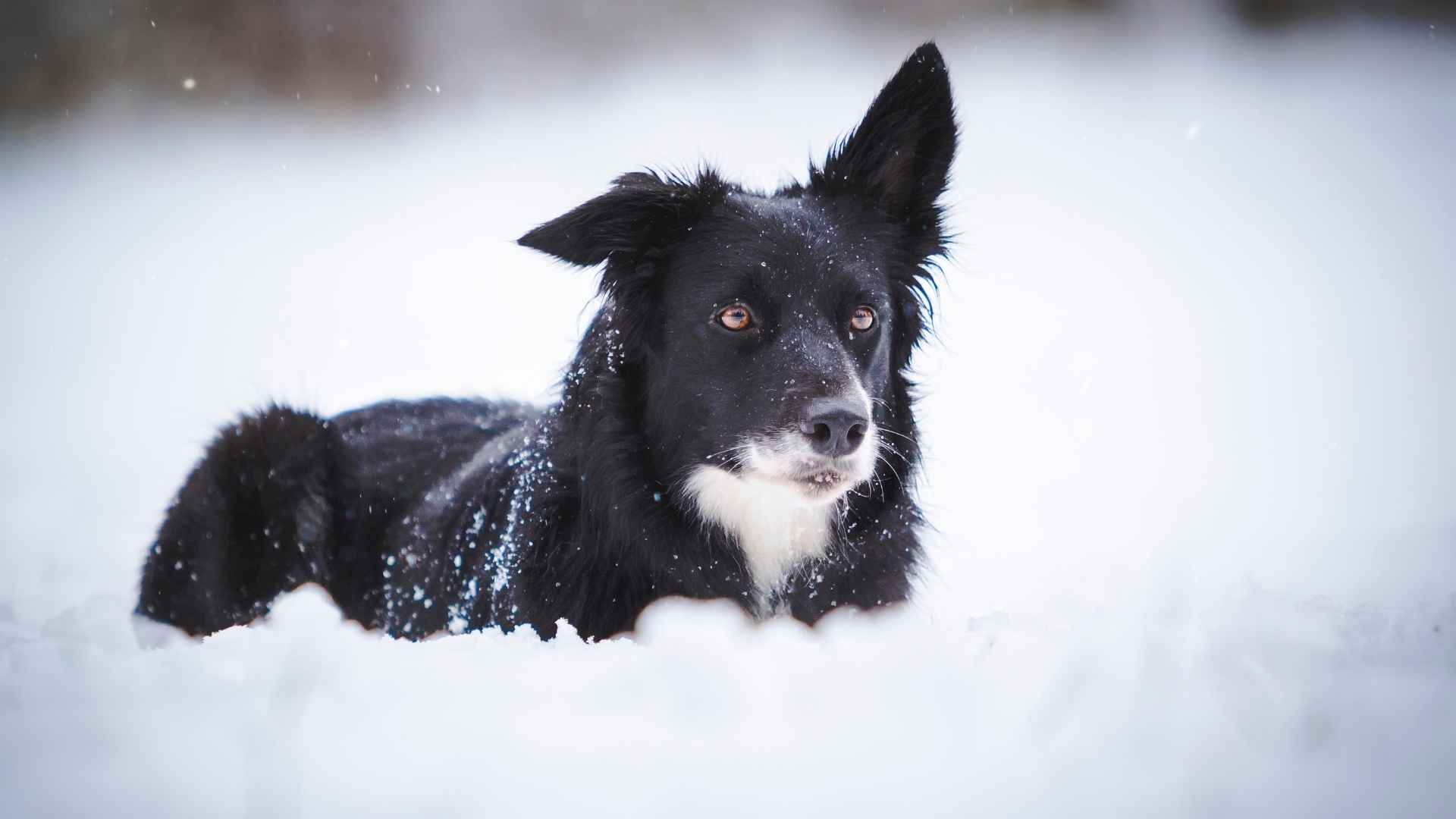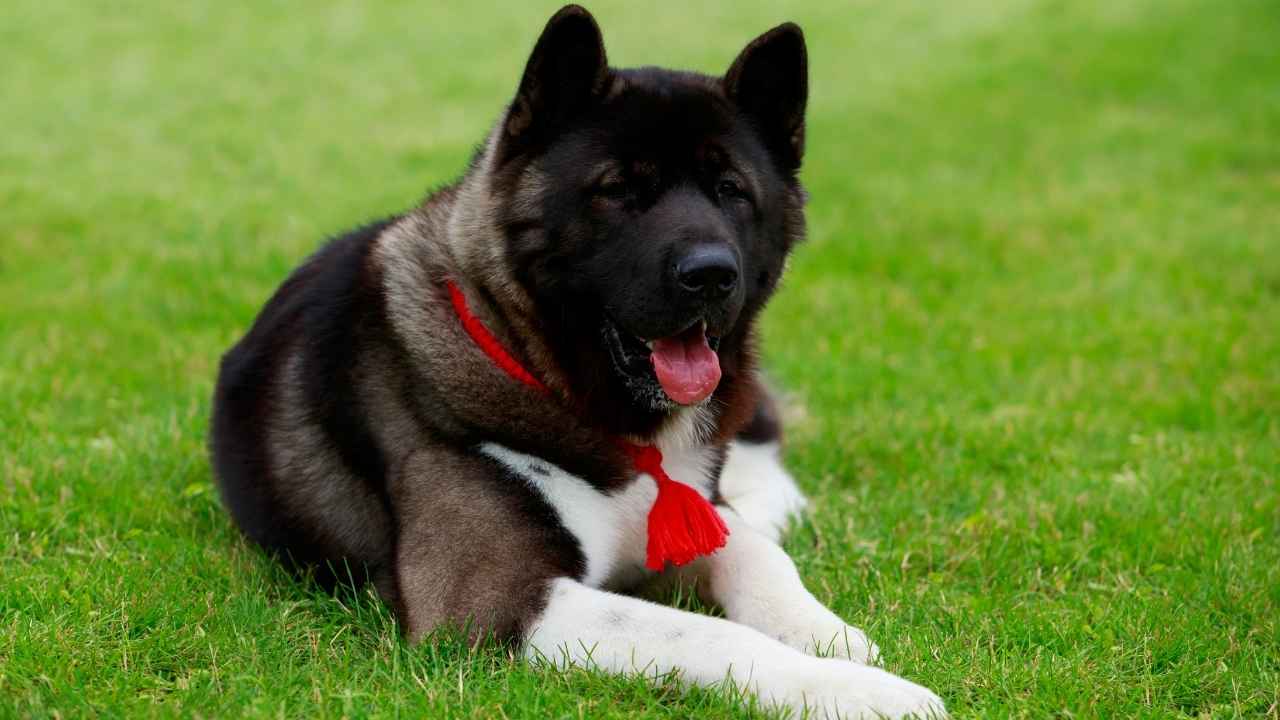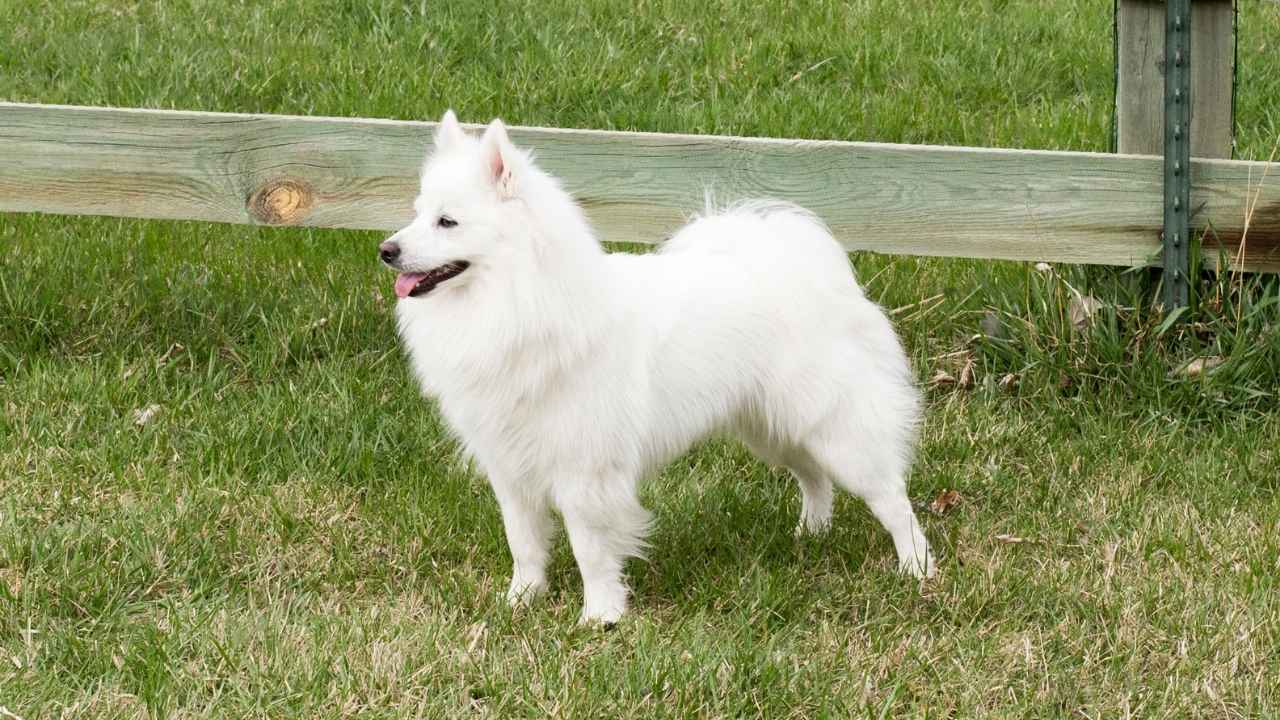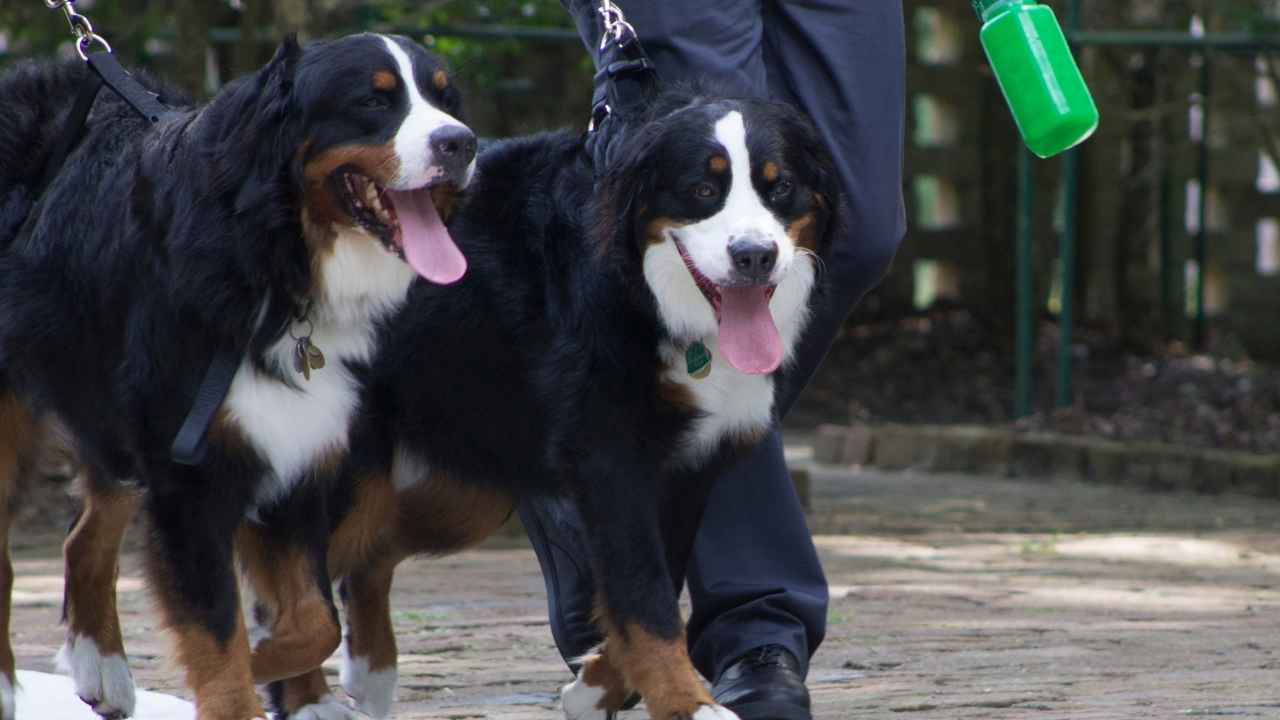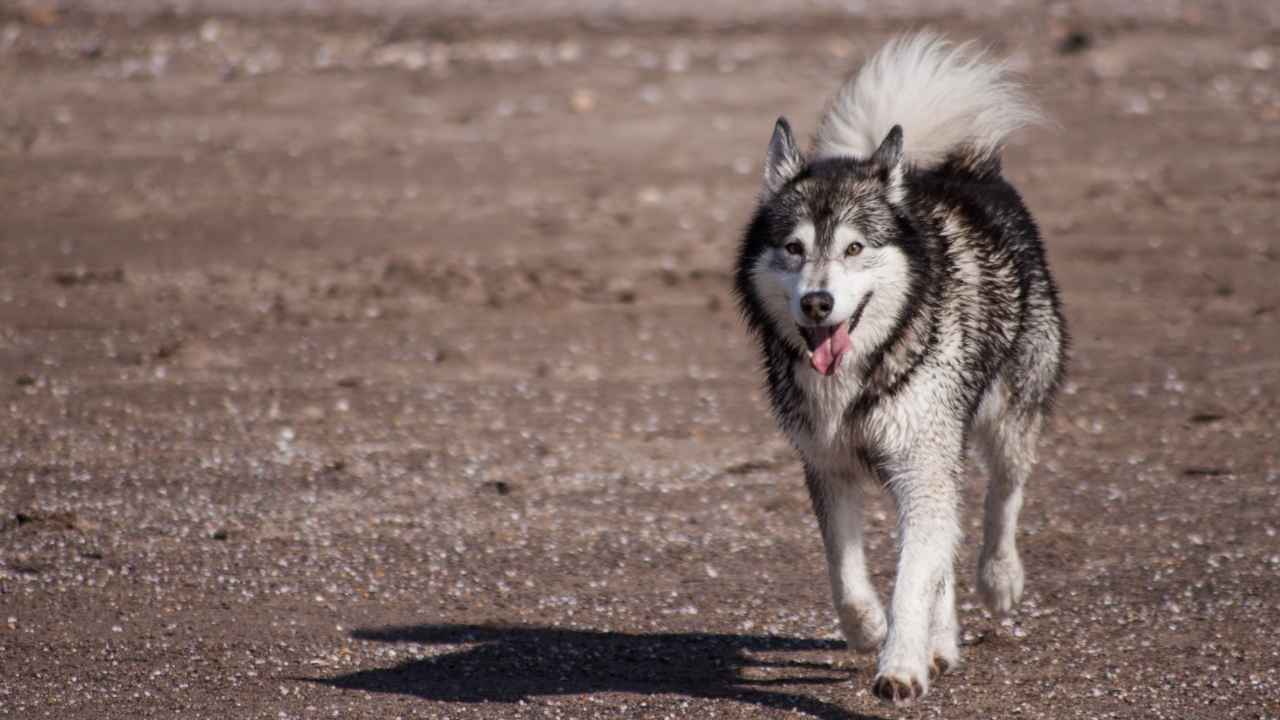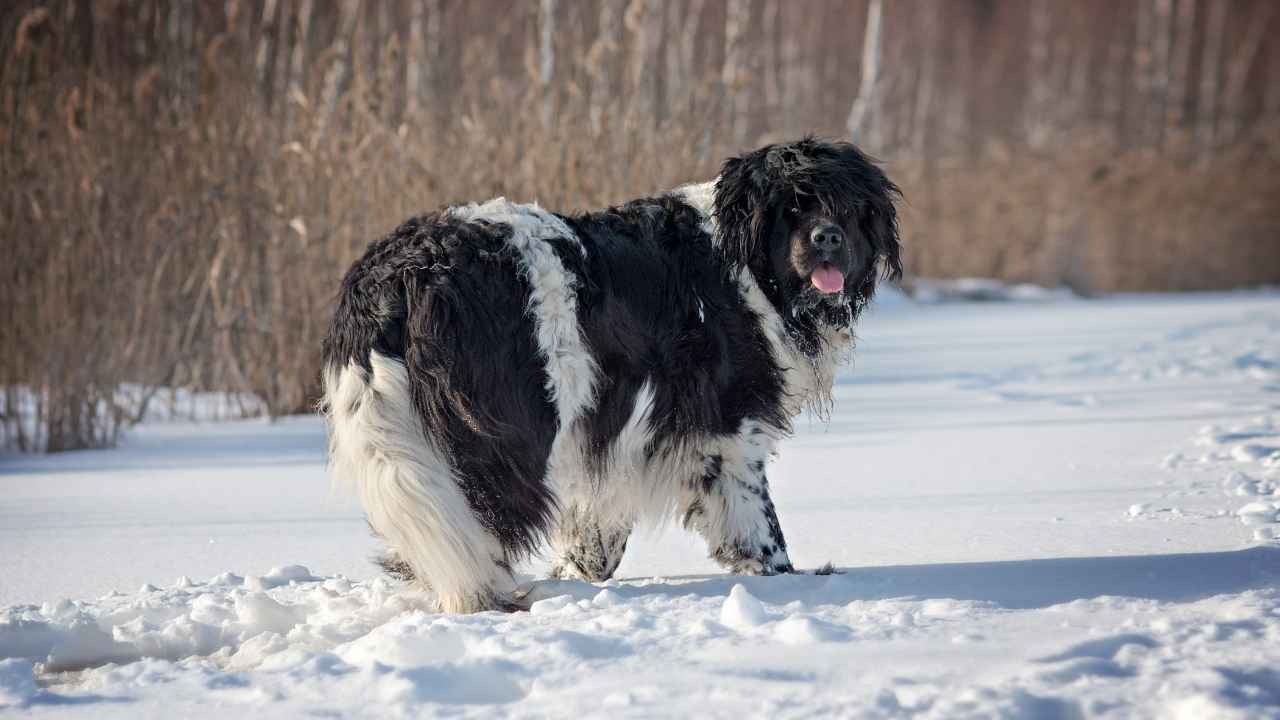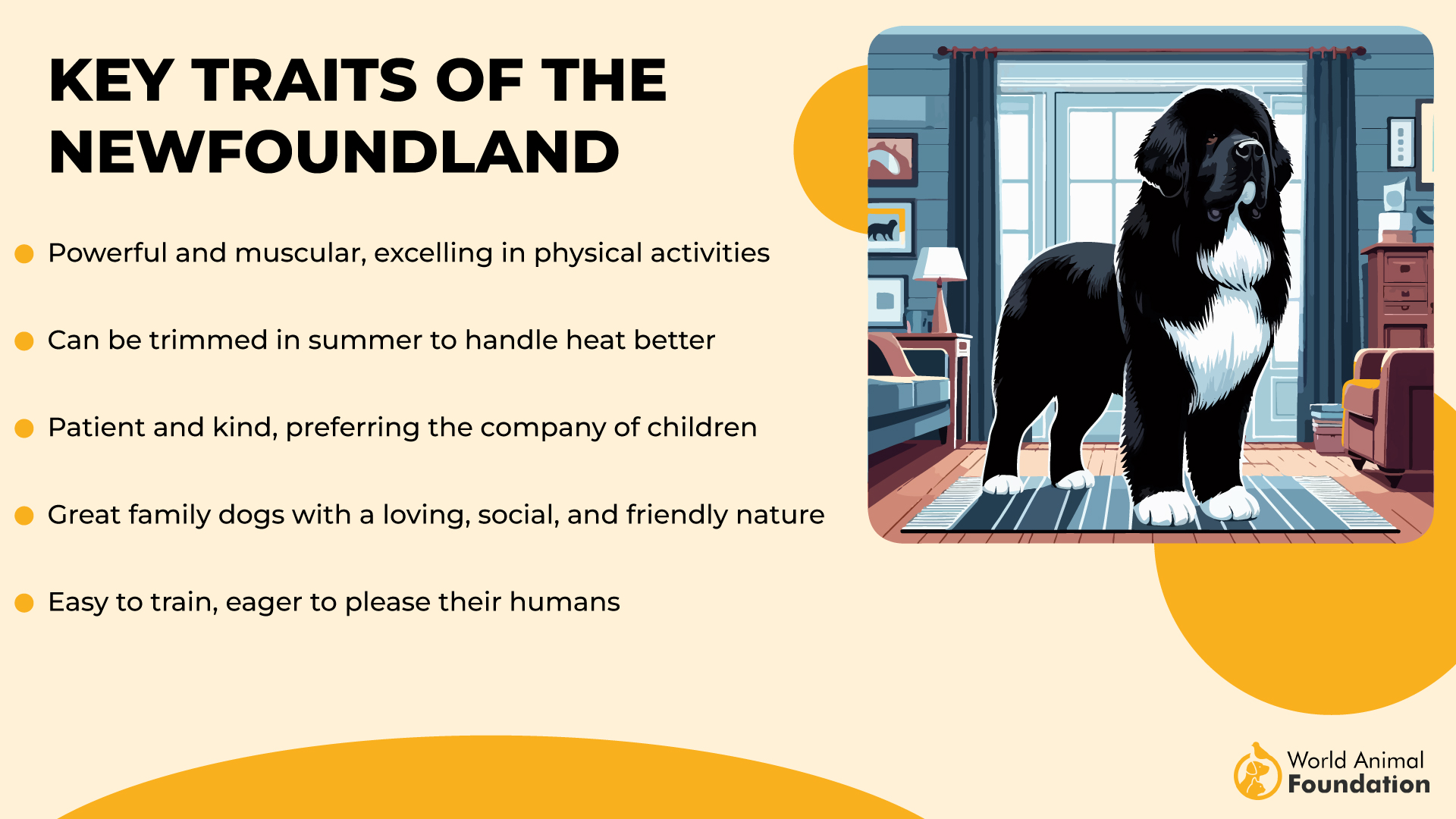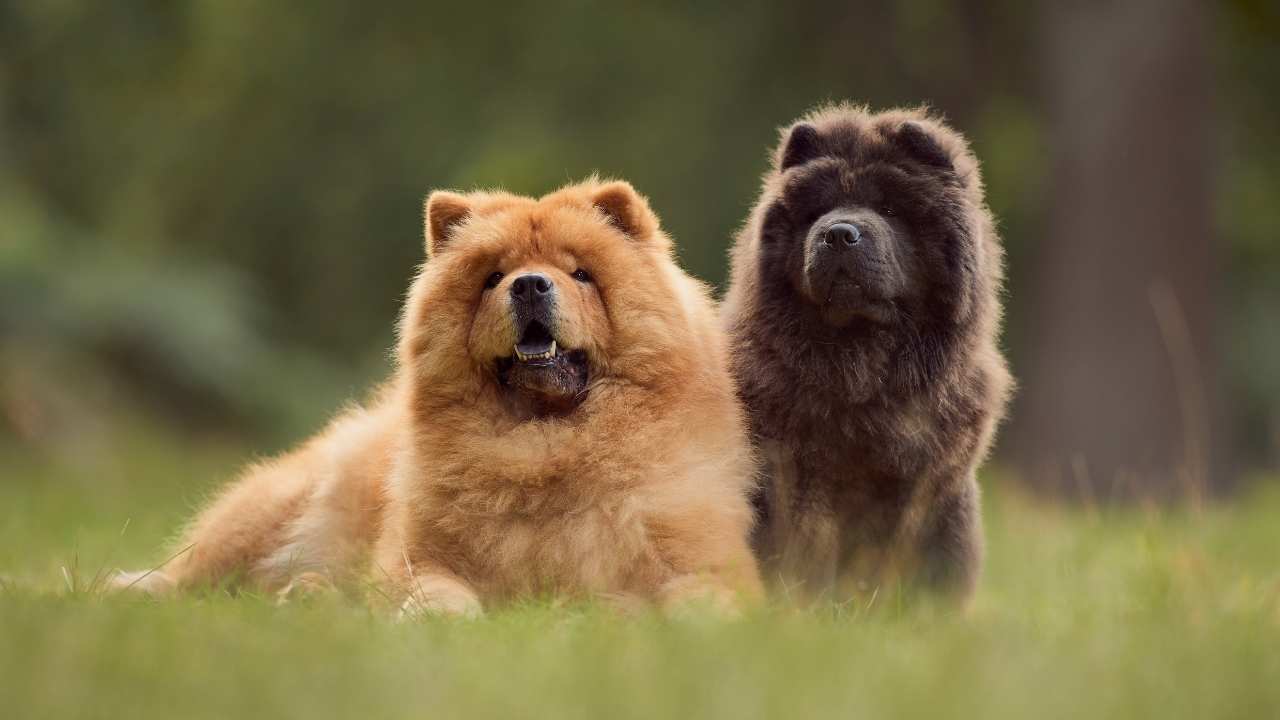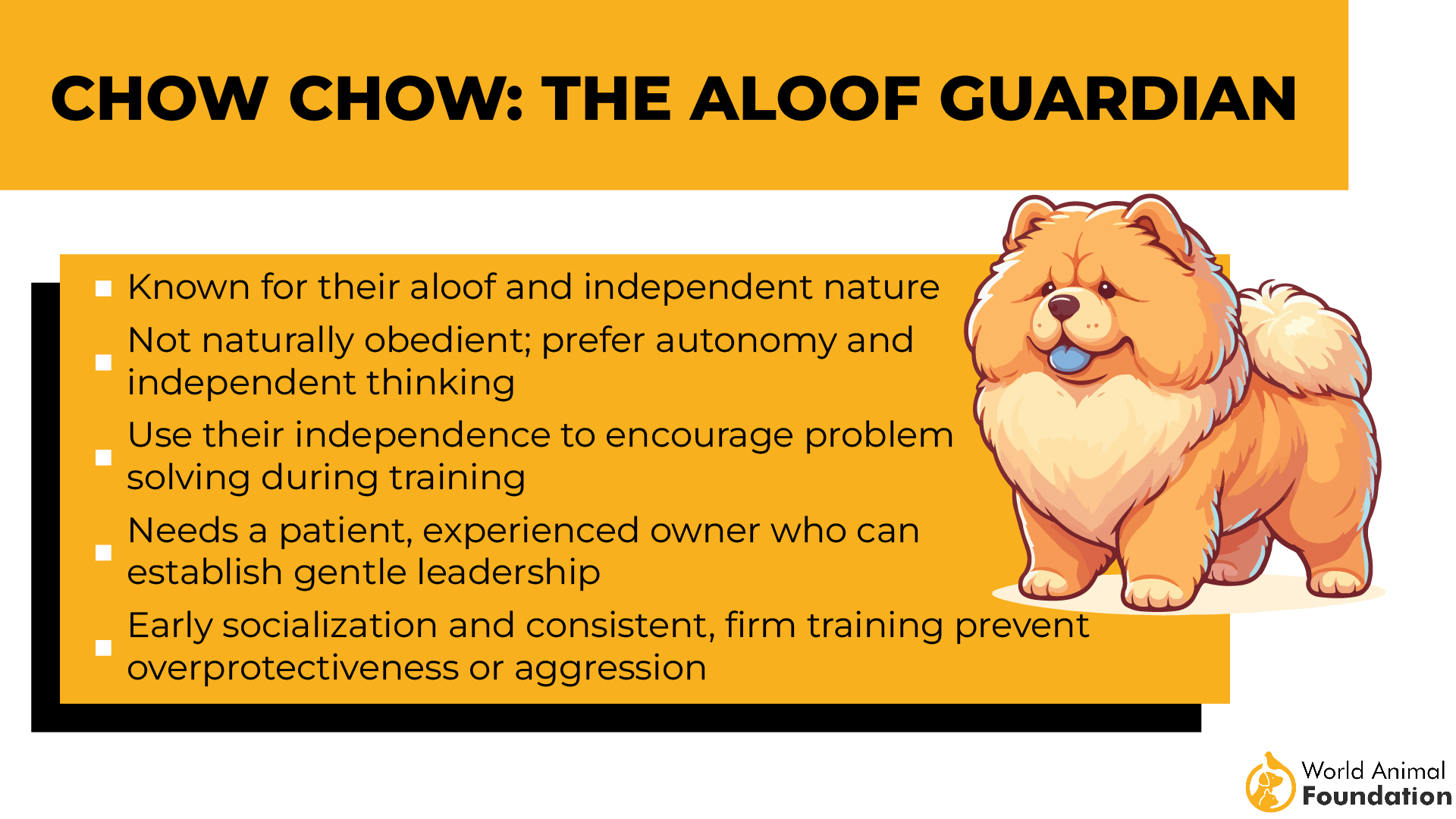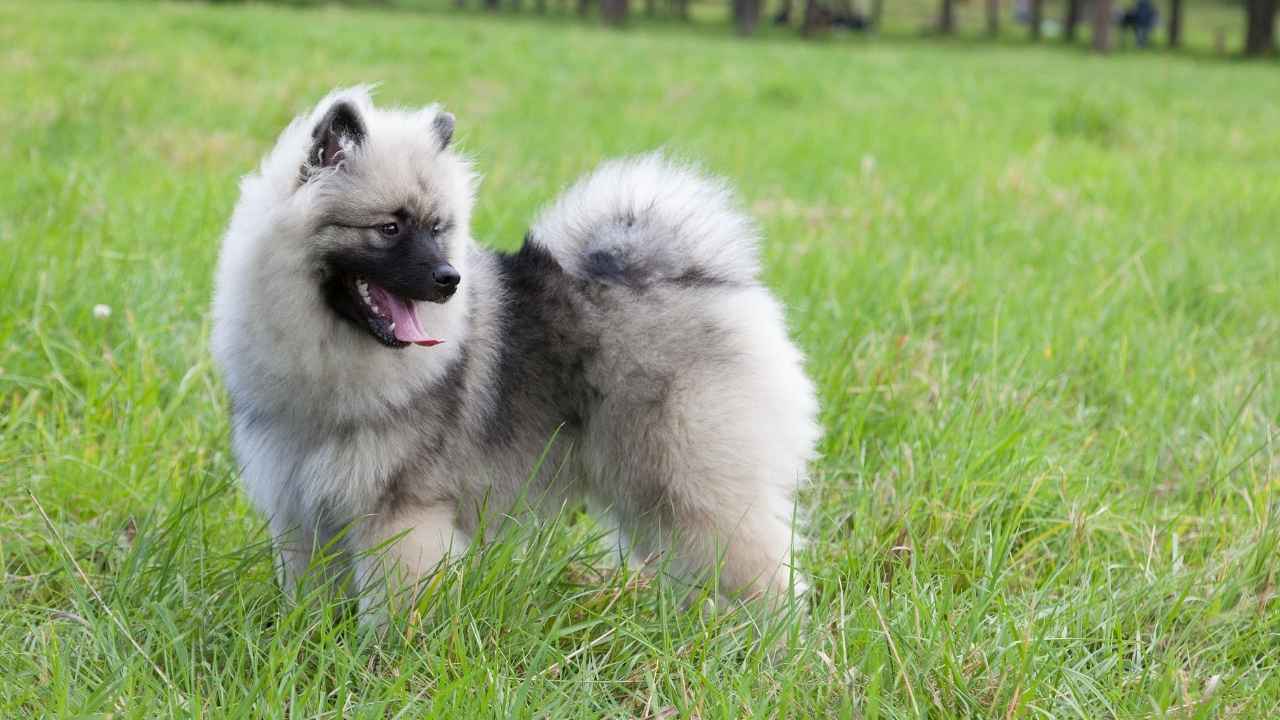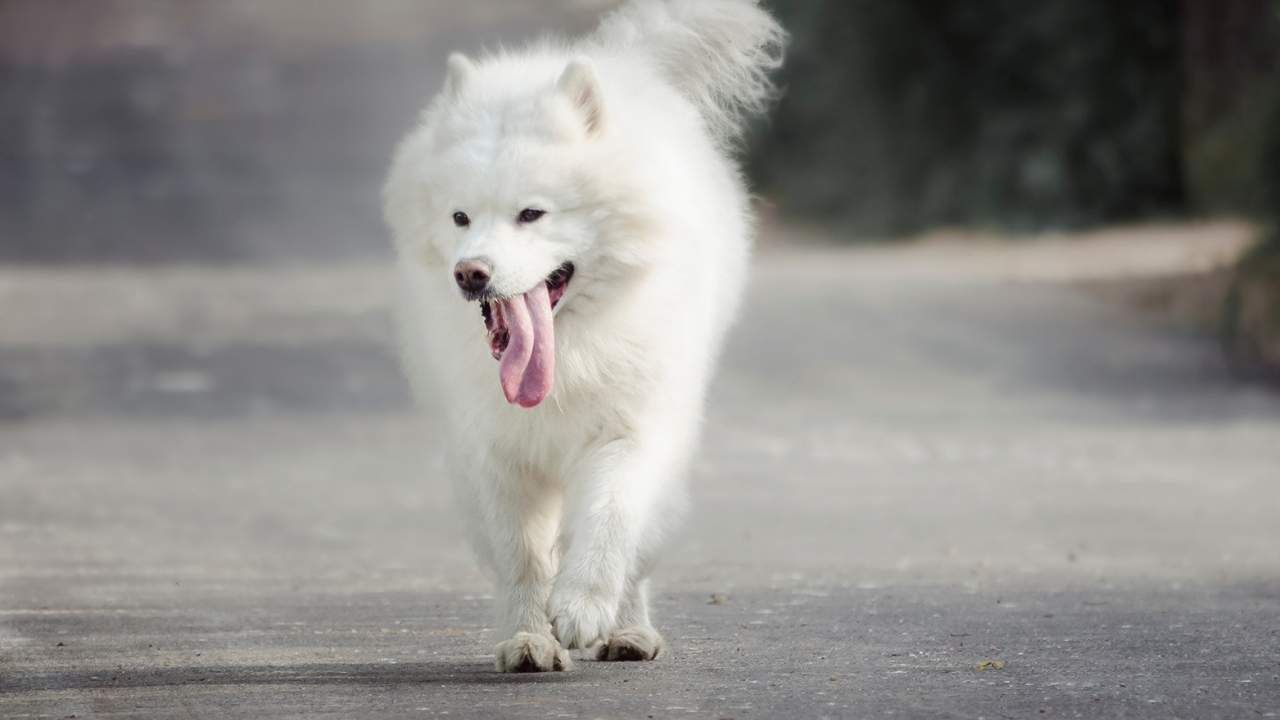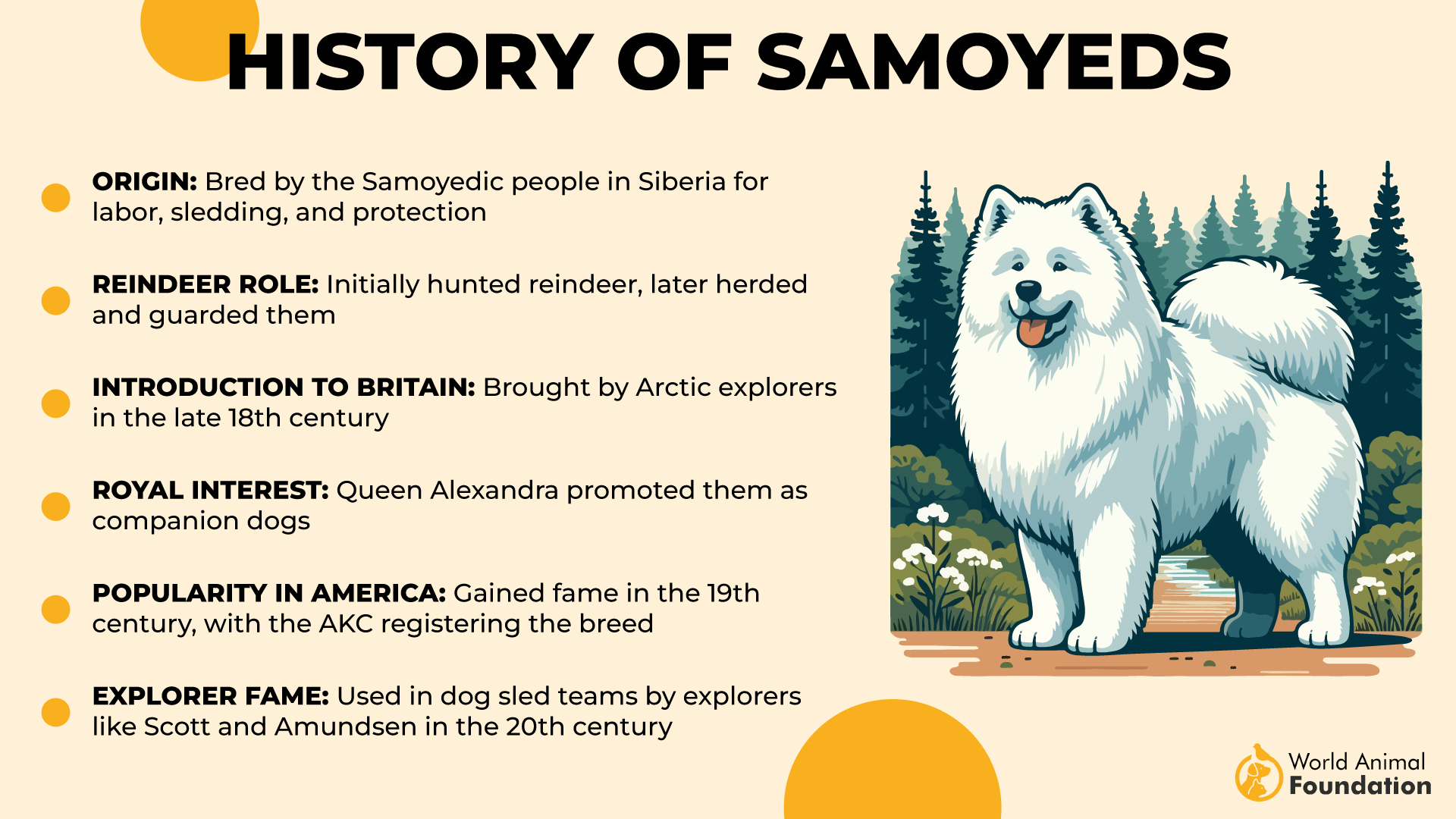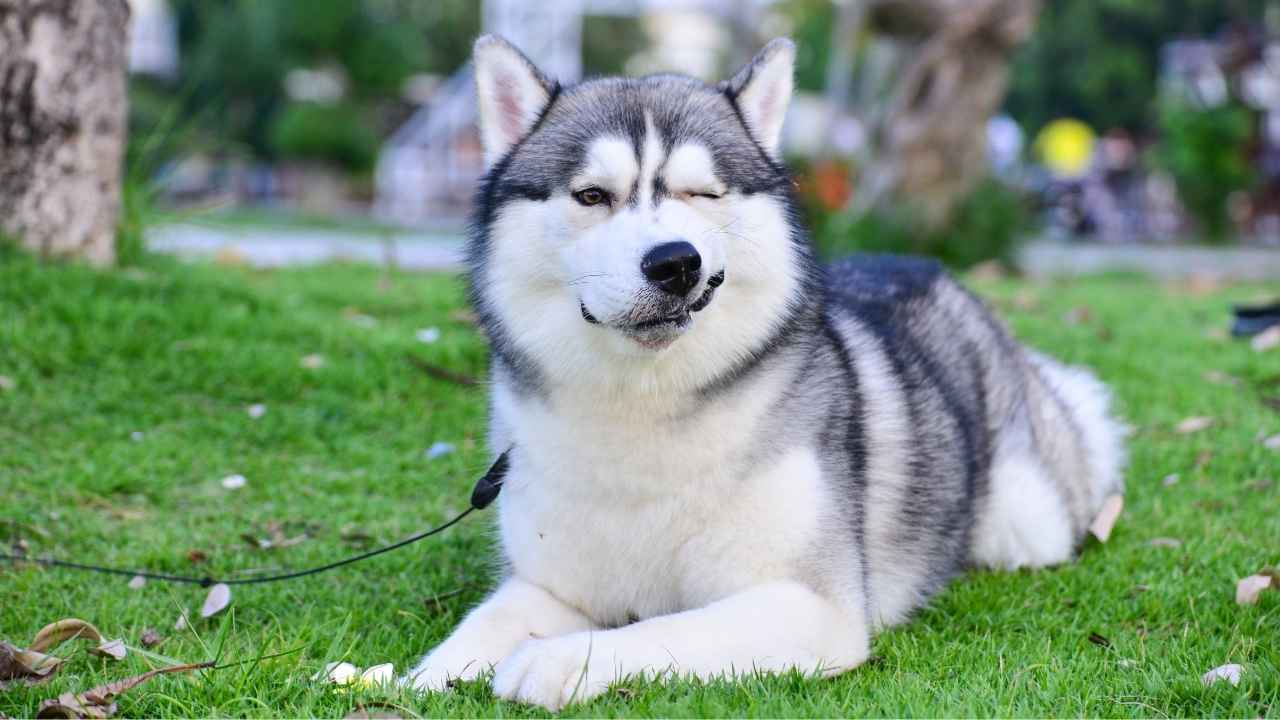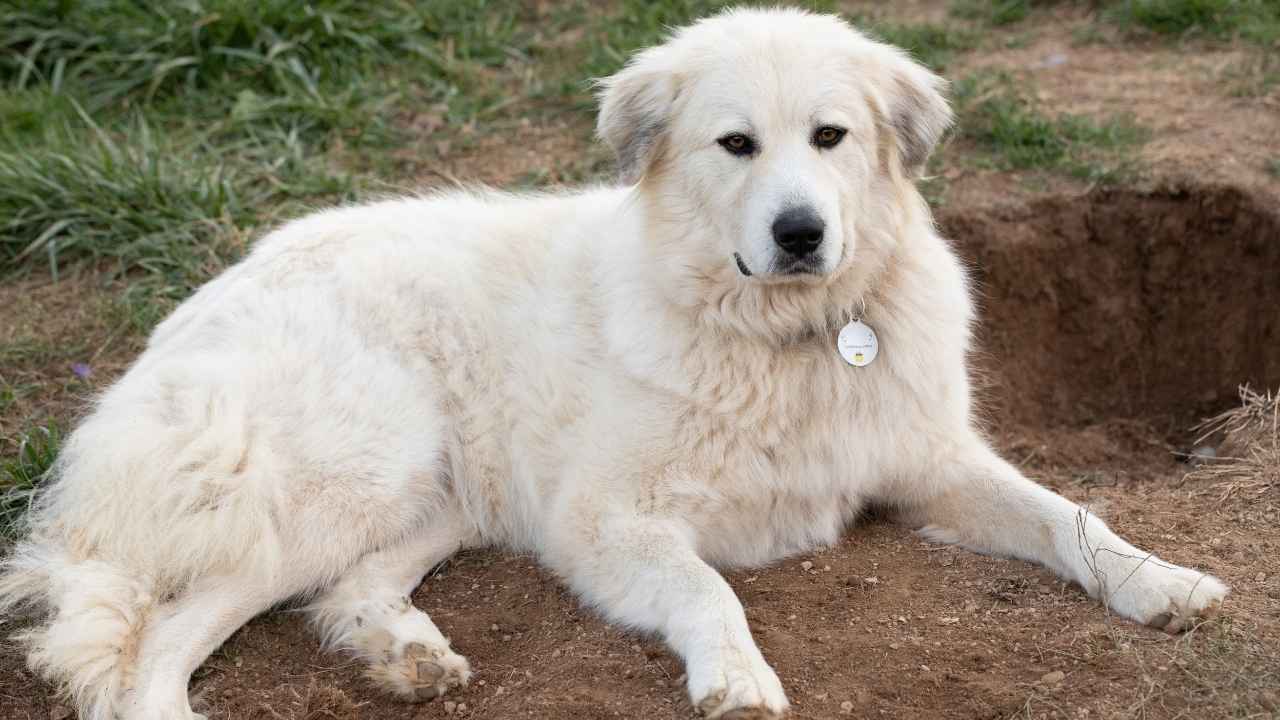As the winter season rolls in, bringing with it frosty mornings and snow-laden landscapes, dog lovers seek companions that thrive in cold climates. The right breed can transform chilly winters into a playground of joy and warmth. Whether you’re drawn to the robust charm of the Siberian Husky or the regal endurance of the Alaskan Malamute, selecting the perfect cold-weather canine can enhance your winter adventures. These ten dog breeds, each equipped with natural insulation and a love for colder temperatures, are ideal companions for those frosty winter months, ensuring both warmth and fun for you and your furry friend.
When winter rolls in and snowflakes start to fall, there’s nothing better than having a dog who’s made for the cold! Some breeds are built to tackle freezing temperatures with thick coats and a natural love for snowy adventures.
Whether you’re looking for a loyal buddy to keep you cozy or a powerhouse sled dog ready for action, there are plenty of dogs who thrive in frosty conditions. These pups don’t just survive winter—they embrace it! From the energetic husky to the sturdy Bernese Mountain Dog, these breeds are designed for chilly days and snow-filled fun.
So, grab your gloves, bundle up, and get ready to meet the top dogs that make winter the best season to enjoy with your four-legged friend. They’ll turn the cold into an exciting adventure you’ll never forget!
Dog Breeds for Cold Climates
1. Akita
The Akita is a powerful, independent dog breed originally developed in Japan. Its dense, double coat keeps it warm in cold environments, making it perfect for chilly weather. Known for their loyalty and courage, Akitas have a strong, protective nature, ideal for guarding homes or families in freezing conditions.
According to AKC, Akitas are resilient to cold temperatures and enjoy outdoor activities. They thrive in environments where they can roam and explore, though due to their independent streak, they require a firm owner. Their thick coat needs regular grooming to prevent matting, especially in winter.
Despite their size and strength, Akitas are affectionate with their family members, though they tend to be reserved around strangers. They are well-suited for experienced owners who can handle their assertive nature.
|
Coat |
Dense double coat |
|
Activity Level |
Moderate to high |
|
Temperament |
Independent, loyal |
2. American Eskimo Dog
The American Eskimo Dog, with its fluffy double coat and striking appearance, is perfectly suited for snow and cold weather. This breed is a descendant of the German Spitz and was originally bred for herding and guarding in freezing climates. Their thick coat keeps them warm in low temperatures, and their energetic personality makes them well-suited for active families.
American Eskimo Dogs are playful, intelligent, and love outdoor activities. Their wooly undercoat and double coat provide excellent insulation in cold environments. However, regular grooming is necessary to maintain their fur, especially during shedding seasons.
While this breed loves the cold, it’s important to engage them in mental and physical activities. Their high intelligence makes them easy to train, and they enjoy tasks like agility and obedience.
|
Coat |
Double coat, thick |
|
Activity Level |
High |
|
Temperament |
Playful, intelligent |
3. Bernese Mountain Dog
The Bernese Mountain Dog is a gentle giant bred in the Swiss Alps to work as a farm and livestock guardian. This breed’s thick double coat is designed to protect them from freezing temperatures and snow. Their calm, affectionate temperament makes them great companions for families living in cold weather climates.
Bernese Mountain Dogs enjoy being outdoors, though they prefer moderate activity. As per Britannica, their very thick coat requires consistent grooming, especially in winter months, to prevent matting. Despite their size, they are known for their affectionate nature and are gentle with children and other pets.
Their calm demeanor and loving nature make them well-suited for families who enjoy spending time outdoors in cold conditions. They thrive in homes with plenty of space, where they can stretch their legs and enjoy the snowy weather.
|
Coat |
Thick double coat |
|
Activity Level |
Moderate |
|
Temperament |
Gentle, affectionate |
4. Alaskan Malamute
Alaskan Malamutes are one of the most iconic snow dog breeds. Originally bred to haul heavy loads in the Arctic, these dogs are strong, independent, and well-suited for cold temperatures. Their thick double coat keeps them warm in freezing temperatures, and they excel in snow and icy terrain.
These dogs are incredibly active and require significant exercise to stay healthy and happy. Malamutes love cold weather and enjoy outdoor activities like hiking and running in the snow. However, their independent nature requires an experienced owner to ensure they receive proper training.
Alaskan Malamutes are friendly and affectionate with their families but tend to be aloof with strangers. Due to their strength and size, they need plenty of space to roam and explore.
|
Coat |
Thick double coat |
|
Activity Level |
Very high |
|
Temperament |
Independent, affectionate |
5. Newfoundland
The Newfoundland is a large, gentle breed originally bred for water rescue work in cold northern waters. Their thick double coat and wooly undercoat provide excellent insulation, making them well-suited for cold weather and freezing temperatures. Newfoundlands are affectionate, calm, and protective dogs, ideal for families in colder climates.
Though Newfoundlands are large, they are known as gentle giants and are great with children and other pets. They love snow and can thrive in cold weather with the proper care. Their thick coat requires regular grooming, especially during shedding seasons.
Despite their size, Newfoundlands are not overly energetic and enjoy moderate outdoor activities. They are best suited for homes with plenty of space and families who appreciate their calm and loving nature.
|
Coat |
Double coat, wooly |
|
Activity Level |
Moderate |
|
Temperament |
Gentle, affectionate |
6. Chow Chow
Chow Chows are a unique breed known for their lion-like mane and thick double coat. Originally bred in China as a livestock guardian, these dogs are well-equipped to withstand cold weather and snow. Their coarse coat provides insulation in low temperatures, and their thick ears help protect them from the cold.
Though Chow Chows are independent and sometimes aloof, they are deeply loyal to their families. They are best suited for experienced dog owners, as their strong-willed nature requires firm training. They enjoy moderate outdoor activity and thrive in cold temperatures.
Their grooming needs are high, as their thick coat requires regular brushing. Although they are not overly energetic, they enjoy spending time outdoors in chilly weather and will form a strong bond with their family, as stated by PetPlan.
|
Coat |
Double coat, coarse |
|
Activity Level |
Moderate |
|
Temperament |
Independent, protective |
7. Keeshond
The Keeshond is a lively, affectionate breed known for its thick, double coat and striking fox-like face. Originally bred in northern Europe, Keeshonds are well-suited for cold climates. Their thick coat and wooly undercoat provide excellent protection against freezing temperatures, allowing them to thrive in snow and icy conditions.
Keeshonds are affectionate dogs that form strong bonds with their families. They are energetic and playful, making them ideal for active families who love outdoor winter activities. However, their thick coat needs regular grooming to prevent matting, particularly in colder weather.
Despite their fluffy appearance, Keeshonds are hardy and resilient, able to handle cold weather with ease. Their playful and friendly nature makes them great companions for families with children or other pets.
|
Coat |
Double coat, thick |
|
Activity Level |
High |
|
Temperament |
Affectionate, lively |
8. Samoyed
The Samoyed is another iconic snow dog, known for its immense double coat and beautiful white fur. Originally bred by the Samoyede people of Siberia, these dogs were used to haul heavy loads and herd reindeer in freezing Arctic conditions. Their thick coat and wooly undercoat make them ideal for cold weather and snow.
Samoyeds are friendly, affectionate, and highly energetic dogs. Purina states that they require regular exercise and enjoy outdoor activities like hiking, running, and playing in the snow. Despite their playful nature, they need firm training due to their independent streak.
Samoyeds are also known for their “Sammy smile,” which adds to their charming and lovable nature. Their thick coat needs frequent grooming to avoid matting, particularly in cold weather, and they flourish in low temperatures.
|
Coat |
Double coat, wooly |
|
Activity Level |
High |
|
Temperament |
Friendly, energetic |
9. Siberian Husky
The Siberian Husky is one of the most famous cold-weather breeds, known for its stunning appearance and thick fur. Originally bred by the Chukchi people of Northeast Asia, these dogs were specifically trained to pull sleds across long distances in freezing temperatures, helping their owners navigate the harsh Arctic environment. Their thick double coat provides exceptional protection from the cold, making them ideal for snowy and icy environments.
Siberian Huskies are energetic, independent, and playful dogs that thrive in cold climates. They love outdoor activities, especially running and pulling sleds in the snow. However, their independent nature and high energy levels require experienced owners who can provide them with plenty of physical and mental stimulation.
Despite their playful demeanor, Huskies can be stubborn and require firm, consistent training. They are friendly and social, but due to their strong prey drive, they should be supervised around smaller animals.
|
Coat |
Double coat, thick |
|
Activity Level |
Very high |
|
Temperament |
Energetic, independent |
10. Great Pyrenees
The Great Pyrenees is a majestic breed known for its immense double coat and calm, protective nature. Originally bred as a livestock guardian in the Swiss Alps, these dogs are perfectly suited for cold weather climates. Their thick coat provides insulation, making them capable of enduring snow and freezing temperatures.
Great Pyrenees are gentle giants who are affectionate with their families and protective of their loved ones. They require plenty of space to roam and are best suited for homes with large yards. Though calm indoors, they still need regular exercise and mental stimulation to stay healthy.
This breed’s heavy coat requires regular grooming, especially in cold weather. Their independent nature and strong guarding instincts make them well-suited for experienced owners who can provide firm training and guidance.
|
Coat |
Immense double coat |
|
Activity Level |
Moderate |
|
Temperament |
Gentle, protective |
Conclusion
These ten cold-weather dog breeds are perfectly equipped to thrive in snow and freezing temperatures. Whether you’re looking for a snow dog, a loyal family companion, or a hardworking livestock guardian, breeds like the Akita, Siberian Husky, and Great Pyrenees offer the protection, resilience, and affection you need for cold climates. Their thick coats and love for cold weather make them excellent choices for families living in snowy or icy regions. Many of these breeds, such as the Samoyed and Siberian Husky, are ancient breeds that have been bred over centuries to withstand the harshest cold temperatures and snowy environments.
When selecting the best snow dog breeds, it’s important to consider both the breed’s natural traits and how well it will fit into your lifestyle. Dogs like the Akita and Siberian Husky are incredibly hardy and have the right temperament for cold weather climates, while breeds like the Great Pyrenees and Bernese Mountain Dog are gentle giants that will thrive in families and homes with space to roam. Their immense double coats are perfect for insulation, ensuring they stay warm and comfortable during the coldest winter months.
In conclusion, choosing the right dog breed for cold climates is essential for those living in wintery regions. Breeds such as the Siberian Husky, Alaskan Malamute, and Saint Bernard are naturally equipped to thrive in cold weather due to their thick coats and resilient build. These breeds not only offer companionship but also exhibit qualities like strength and endurance, making them ideal for snowy adventures. Embracing these cold-shielded companions ensures comfort and joy throughout the winter season, highlighting the importance of selecting dogs whose characteristics align with their living environment.

